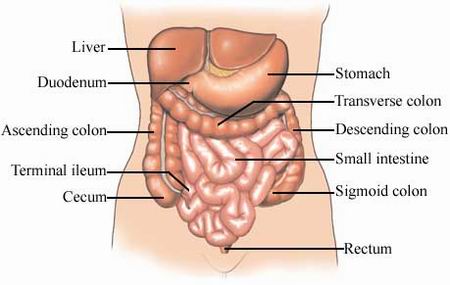Irritable bowel syndrome may not be a life-threatening condition, but it can certainly make you irritable. Your colon (large intestine) is supposed to squeeze slowly and steadily to move waste material toward your rectum. Occasionally, stronger contractions result in a bowel movement. If you have irritable bowel syndrome, however, your colon has no self-control. It may squeeze too hard, rushing food through your system quickly, resulting in cramps and diarrhea. Or it may not squeeze hard enough, so food sits in your body too long, making you feel bloated and constipated. Some people may experience alternating periods of diarrhea and constipation with IBS.
When you are suffering the ups and downs of irritable bowel syndrome, you may be tempted to reach for an over-the-counter laxative or other medicines for a quick fix. However, you could end up depending on laxatives, which would weaken your intestines in the long run. See your doctor if IBS interferes with your life. He may prescribe fiber supplements or tranquilizers to help you relax. But self help may be the most sensible, long-lasting solution to IBS.

The long-range plan for IBS
If you have irritable bowel syndrome, the bad news is that you’ll probably have to deal with it for years to come. The good news is it doesn’t cause permanent damage to your digestive system, and it doesn’t lead to more serious problems. It is also controllable. Try some of these hints to soothe and calm that cranky bowel.
- lAdd fiber to your diet. A high-fiber diet may make your colon’s job easier and lessen the chances of colon spasms. When it comes to IBS, however, all fiber is not created equal. Some forms of fiber may actually make IBS symptoms worse. Some people find that certain citrus fruits and bran give them a problem. Try whole-grain products and high-fiber fruits and vegetables. Products that contain psyllium, like Fiberall and Metamucil, may be helpful.
- Learn what foods make your IBS worse. You may need to steer clear of certain foods. Although food triggers may be different for each person, the more common culprits include fatty fried foods, and spicy or sugary foods. If lactose intolerance is contributing to your IBS, you need to limit the dairy products you eat.

- Cut the caffeine. Caffeine may stimulate you and keep you awake, but it may also stimulate your colon, causing diarrhea.
- Eat small. Large meals can set off cramps and diarrhea in people with IBS. You may want to try to eat smaller, more frequent meals to avoid these problems.
- Exercise. Believe it or not, your bowels work better when you exercise regularly. Exercise is also relaxing, and since stress contributes to IBS, moving your body may ease your IBS in more ways than one.
- Lower your stress. Although this is obviously easier said than done, lowering your stress level may help relieve the pain in your gut. Take time out of your busy day to listen to soothing music, read a relaxing novel, or take a brisk walk. If you have a huge amount of stress in your life, counseling may help.